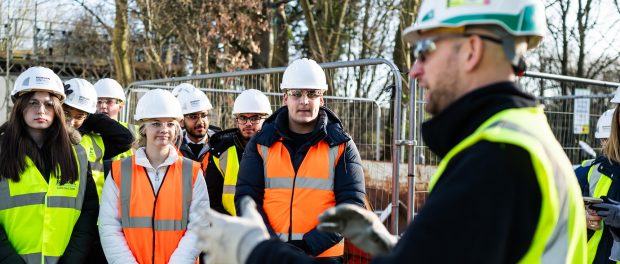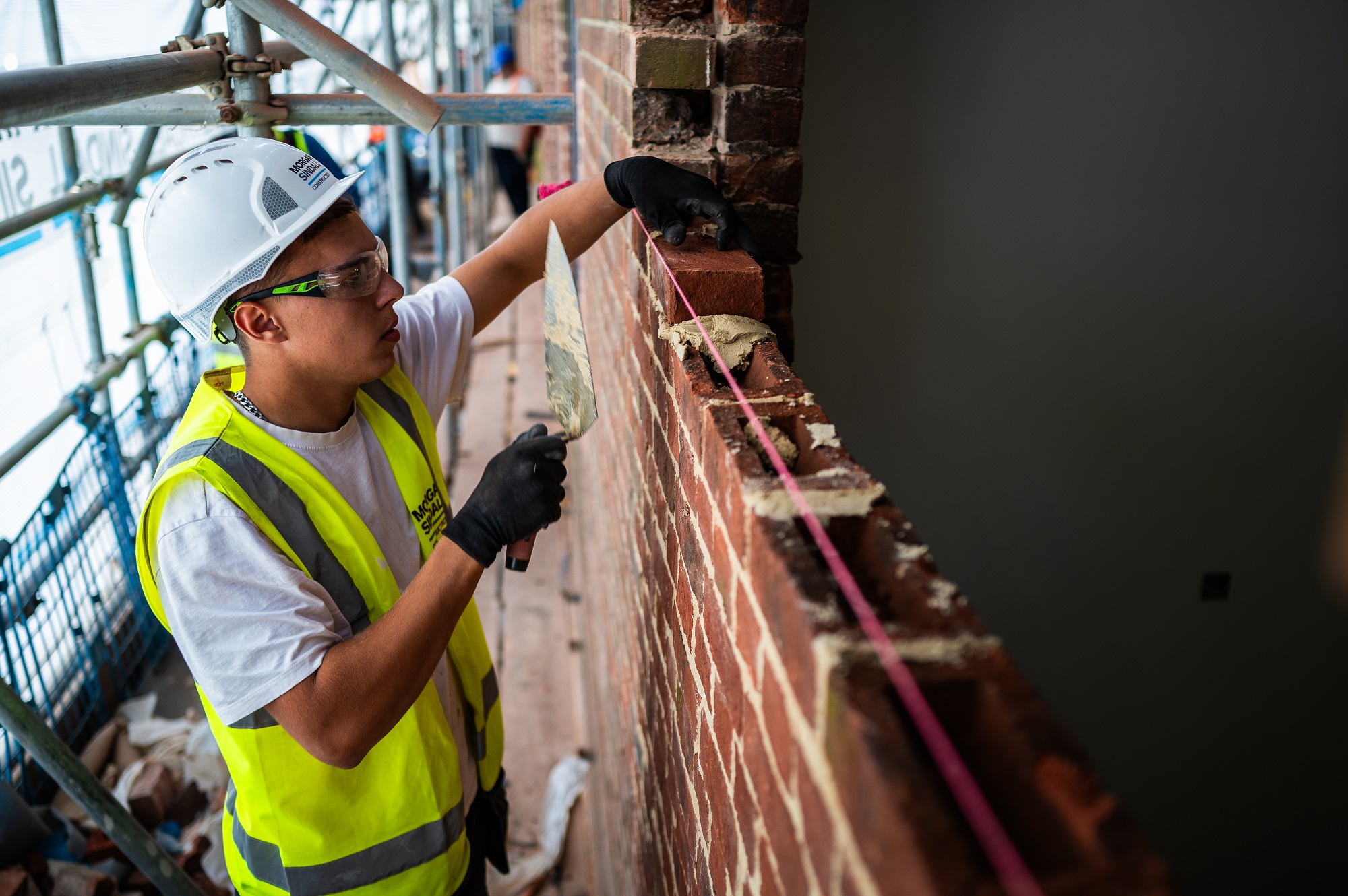High-quality technical education is the foundation for delivering major infrastructure projects

Attributed to Helen Clements, Senior Social Value Manager, Morgan Sindall Construction
In recent months, the government has made ambitious announcements on large-scale infrastructure projects, such as the third runway at Heathrow and the Oxford-Cambridge corridor and the additional funding for social and affordable housing, will help deliver much needed growth across the country. However, many were left wondering, are there enough skilled people to deliver them?
With 300,000 fewer construction workers than in 2019 and an estimated 500,000 more needed to just meet the government’s annual target of 300,000 new homes, the demand for skilled professionals is more urgent than ever.
This is where T-levels come in. They offer a valuable blend of classroom learning and practical experience, based on employer-led occupational standards. Students also gain critical hands-on experience through a 45-day industry placement, making them more workforce-ready.
In construction, on-site experience is essential from the start. A purely academic approach leaves students unprepared for the realities of the job. That’s why Morgan Sindall Construction offers apprenticeships and trainee schemes open to all, combining paid work with academic learning. For T-level students, industry placements provide the perfect bridge between education, apprenticeships, and employment.
Morgan Sindall has been involved with T-levels from the beginning. In 2017, we contributed to developing the construction T-level qualification, ensuring it meets industry needs. The transformation in students from their first day to their last is remarkable. Their confidence soars as they apply classroom knowledge to real-world projects. At Morgan Sindall, we fully integrate T-level students into our project teams, offering hands-on training from experienced professionals. Since 2020, we have offered over 370 work experience placements to young people studying a range of subjects including design, surveying, planning, construction and engineering and business management.
These placements aren’t just beneficial for students—they’re invaluable for employers, too. When T-level students later apply for full-time roles, they already understand our processes, terminology, and workplace culture, making their transition seamless. Many of the students we host are now studying degree apprenticeships with us, whereas others have gone on to work for a number of our sub-contractors.
T-levels also help address regional skills shortages, ensuring young people are trained for local employment opportunities. As major infrastructure projects are often geographically widespread, creating a workforce that is well-distributed and well-trained is crucial for balanced economic growth. Local businesses, councils, and training providers need to work together to promote T-levels and create more placement opportunities for students.
Additionally, there is a growing need to challenge outdated perceptions of construction careers. Many still see the industry as limited to traditional trades, overlooking the high-tech, digital, and managerial roles emerging within the sector. T-levels introduce students to a broader range of career paths, from project management and digital design to environmental sustainability and advanced manufacturing.
Ultimately, T-levels create a win-win situation for students and businesses. Employers gain access to a pipeline of skilled young talent, while students receive training that equips them for the job market. Companies that haven’t yet considered offering placements should recognise the significant benefits—both for their own workforce development and for the wider economy.
Government support remains crucial to ensure T-levels continue to provide a viable career pathway. If the UK is to meet its ambitious infrastructure goals, investing in technical education must remain a priority. Additionally, policymakers must continue engaging with industry leaders to refine and expand T-level qualifications to align with the evolving demands of the workforce.
Now is the time for businesses to step up, offer placements, and invest in the next generation of skilled workers. By doing so, we can build a stronger workforce, deliver the infrastructure projects, and ultimately, a stronger economy.


